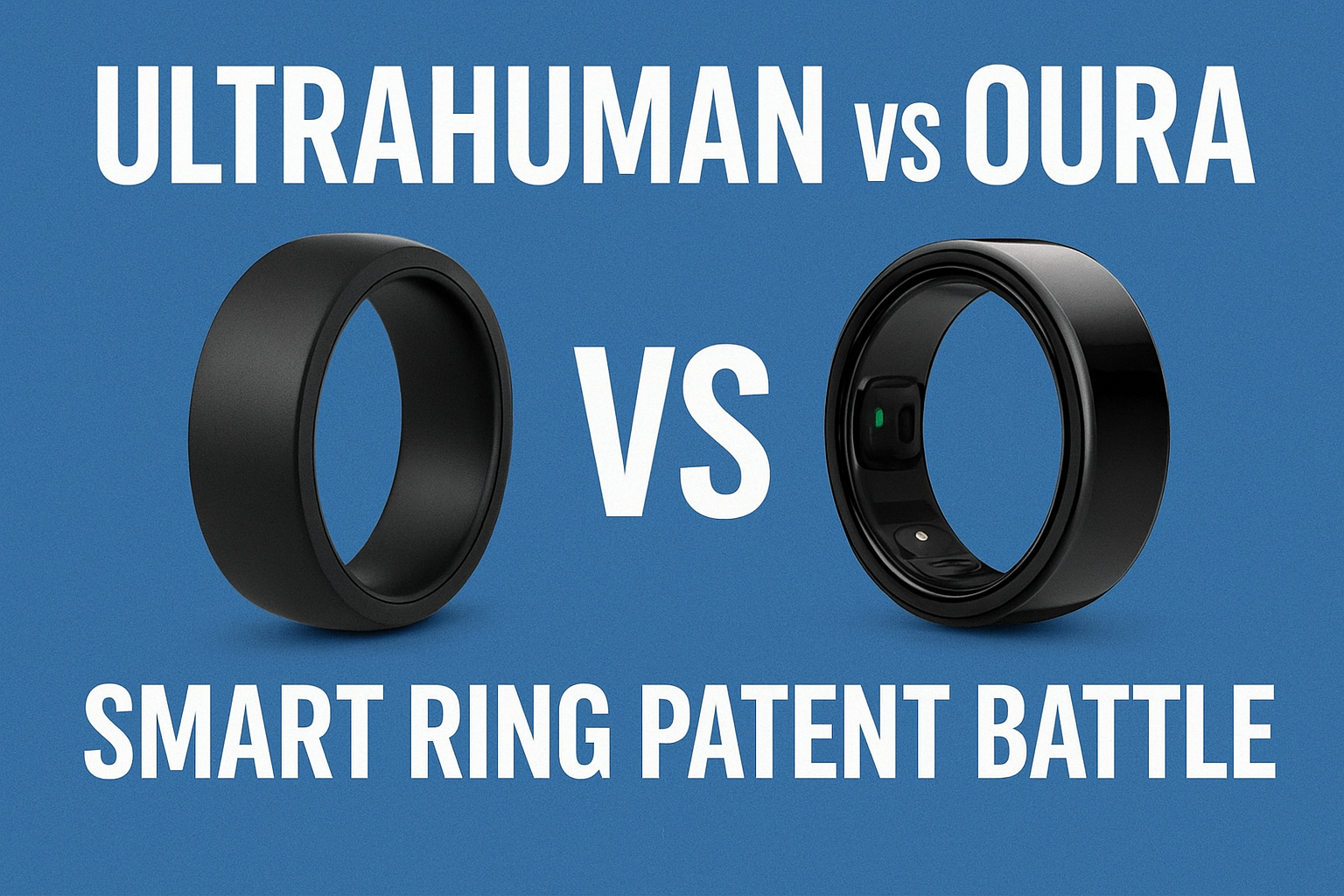Indian health-tech startup Ultrahuman has filed a lawsuit against Finnish wearable maker Oura in the Delhi High Court, escalating the global dispute over smart ring patents. The move comes months after Oura pursued legal action against Ultrahuman in the United States.
Counterattack After US Setback
Oura first sued Ultrahuman in Texas in late 2023, alleging patent infringement and unfair competition. The Finnish company claimed that Ultrahuman copied the design and internal architecture of its Oura Ring, including sensors, battery placement, and overall housing structure.
In April 2025, the US International Trade Commission (ITC) delivered an initial ruling in Oura’s favor, finding that Ultrahuman and Chinese rival RingConn had violated several Oura patents. This raised the possibility of an import ban on Ultrahuman’s smart rings in the US market (Economic Times, Wareable).
Ultrahuman, however, rejected the ruling and pointed out that the US Patent Trial and Appeal Board (PTAB) had already questioned the validity of at least one Oura patent.
Delhi High Court Battle
On August 22, 2025, Ultrahuman struck back by filing its own patent infringement case against Oura in Delhi. The company argued that Oura is misusing patents—particularly those acquired from Motiv, a US wearable company—to suppress competition in India.
Ultrahuman accused Oura of attempting to “weaponize” intellectual property rights in order to restrict fair competition in the fast-growing smart ring market.
Growing Market, Rising Conflicts
Smart rings are emerging as a major segment in wearable technology, offering health tracking, sleep monitoring, and fitness insights in compact form factors. With the market expected to expand rapidly, companies are fiercely defending their intellectual property portfolios.
Oura, which popularized the category with its Oura Ring, has been aggressively protecting its patents against rivals. Ultrahuman, on the other hand, has positioned itself as an Indian challenger brand with a growing global presence.
What Lies Ahead
The Delhi High Court case adds a new front to the ongoing global battle. If the court sides with Ultrahuman, it could limit Oura’s ability to enforce its patents in India—one of the fastest-growing markets for wearables.
Meanwhile, the ITC’s final ruling in the US, expected later this year, could determine whether Ultrahuman faces restrictions in exporting its smart rings to America.
The legal fight highlights how intellectual property disputes are shaping the future of wearable tech and could determine which brands dominate the global smart ring industry.





